See also: How "Fascist Capitalism" Functions: The Case of Greece (12/7/15) by Eric Zuesse | Global Research, Are we Sure that Tsipras Caved In? (11/7/15) | Global Research/fsaraceno.wordpress.com, Behind the Greek Debt (7/7/15) by Thierry Meyssan | VoltaireNet and other articles about Greece.
 |
 |
Greek citizens,
We are at a critical juncture regarding the future of this country.
Sunday’s referendum is not about whether our country will stay in the Eurozone.
|
This is a given and no one should question this. [More inside article]
On Sunday we will choose whether to accept the institutions’ agreement or whether, with the strength of the people’s verdict, we will seek a viable solution.
In any case, I want to reassure the Greek people of government’s firm intention to reach an agreement with its partners, with conditions that are sustainable and will provide for the long-term.
Since we announced our decision to hold a referendum, better proposals have been offered concerning the debt and its necessary restructuring than those that were on the table on Friday.
We did not ignore them. We immediately submitted our counterproposals asking for a viable solution, and for this reason an extraordinary Eurogroup meeting was convened yesterday, which will continue this afternoon.
Should there be a positive outcome, we will respond immediately. In any case, the Greek government remains willing to negotiate and will do so until an agreement is reached. The government will be at the negotiating table on Monday as well, immediately after the referendum, seeking better terms for the Greek people.
A popular verdict is always so much stronger than the will of a government alone. And I would like to reiterate that democratic choice is a core European tradition. During very important moments in European history, the people have made important decisions through referenda.
This happened in France, and in many other countries, concerning the referendum on the European constitution. This happened in Ireland, where the referendum temporarily voided the Treaty of Lisbon and led to a renegotiation, that resulted in better terms for Ireland. Unfortunately, in Greece’s case, we’ve been subjected to different standards.
Personally, I would have never expected that democratic Europe would not understand the need to give some space and time to a people to sovereignly make a choice about their future.
The prevalence of extreme conservative forces led to the decision to asphyxiate our country’s banks–with the obvious aim of blackmailing not just the government, but each each citizen individually.
It is unacceptable in a Europe of solidarity and mutual respect to have these disgraceful images:
For the banks to be closed, exactly because the government decided to give the people the opportunity to express their will;
And for thousands of elderly people to be deeply inconvenienced. However, the Greek government, despite the financial asphyxiation, took the appropriate measures and made sure that pensions were paid and deposited into the accounts.
We owe an explanation to these people who have been so inconvenienced:
We have been fighting all these months in order to protect your pensions.
To protect your right to a decent pension and not a miserly “tip”.
The proposals that they tried to blackmail us in order to accept demanded huge pension reductions.
And we refused to go along with this.
And this is why they are retaliating today.
The Greek government was given an ultimatum to implement exactly the same austerity measures, and all the outstanding aspects of the memorandum that had not been implemented.
And, in fact, without any provisions on the debt and financing.
This ultimatum was not accepted.
The self-evident alternative was to reach out to the people.
And this is what we have done.
I am well aware that during this period the sirens of destruction have been blaring.
They are trying to blackmail you as well, and ask that you vote YES on all the measures requested by the institutions, without any prospect of exiting the crisis.
They want you to side with those in Parliament who have repeatedly said YES to all the measures that have burdened the country.
To become one with them.
Complicit in perpetuating the memoranda.
It is important to understand, NO is not just a slogan.
NO is a decisive step towards a better deal that we aim to be signed immediately after Sunday’s result.
It constitutes the clear choice of the people concerning how their lives will be going forward.
NO does not mean breaking with Europe, but rather, returning to a Europe of values.
NO means: strong pressure for an economically viable agreement that will solve the debt issue, that will not increase the debt so that it continuously undermines our efforts to rebuild the Greek economy and society.
A socially just agreement that will allocate the burdens to those that can shoulder them, and not the workers and the pensioners.
An agreement that will allow the country, in a short period of time, to access the international financial markets, and thus end the supervision and guardianship.
An agreement containing reforms that will punish, once and for all, those who enable corruption and that have been fueling the political system all these years.
And at the same time, it will address the humanitarian crisis, create a comprehensive safety net for those who are marginalized–precisely because of the policies that have been implemented in our country for so many years.
Greek citizens,
I am fully aware of the difficulties.
I personally pledge that I will do everything possible so that these difficulties are temporary.
Some insist on linking the referendum’s result to the country staying in the euro.
They claim that I have a hidden agenda, if the NO vote prevails, to remove the country from the EU.
They are knowingly lying.
These are same people who used to say the very same thing in the past.
And they do a great disservice to the people and to Europe.
As you are aware, a year ago during the European elections, I was a candidate for the Presidency of the European Commission.
I stood before the Europeans then, just as now, and I argued that austerity policies must stop, that the memoranda will not lead to an end to the crisis.
That the program implemented in Greece failed.
That Europe must stop behaving in an undemocratic manner.
A few months later, in January 2015, the Greek people confirmed these sentiments.
Unfortunately, certain people in Europe refuse to understand this, refuse to admit this.
Those who want a Europe of authoritarianism that fails to respect democracy, those who wish for Europe to be a superficial union with the IMF being the “glue” that binds, are not visionaries for Europe.
They are timid politicians, unable to think as Europeans.
They stand side by side with those in our domestic political system, who are responsible for leading our country to bankruptcy, and that now have the gall to attempt to dump the burden on us–even as we’ve been trying to put an end to the country’s course of destruction.
They dream, indeed, of being restored to power.
This is what they’ve been hoping for—and still hope for, irrespective of whether we accepted the ultimatum–as they have blatantly sought an unelected Prime Minister who would implement it– or whether we gave our people the opportunity to express their will.
They talk of a coup. But democracy is not a coup. Unelected governments intent on manipulating circumstances—that is a coup.
Greek citizens,
I want to wholeheartedly thank you for the calmness and composure you’ve shown during every hour of this difficult week.
I want to assure you that this situation will not drag on.
It will be temporary.
Salaries and pensions will not be lost.
The deposits of citizens who did not withdraw their money or place it abroad will not be sacrificed on the altar of expediency and extortion.
I personally assume responsibility for reaching a solution immediately after the democratic process.
I urge you to strengthen this negotiating effort with your support, I invite you to say NO to the memorandum measures that are destroying Europe.
I invite you to respond positively to the prospect of a viable solution.
To turn a page, that calls for upholding democracy.
With the certain hope that we will reach a better deal.
We owe this to our parents, our children, ourselves.
It is our duty. We owe this to history.
Thank you.
Thank you Prime Minister of Greece
Source: http://www.primeminister.gov.gr/2015/07/01/13835
Publication Date of original article: 01/07/2015
URL of original article: http://www.tlaxcala-int.org/article.asp?reference=15112
Other Articles about Greece
Greece – Black Friday – Blackmailed into Capitulation? Tsipras' Austerity Plan (10/7/15) by Peter Koenig | Global Research, Why Greece Will Have to Exit the Eurozone (8/7/15) by Jonathon Cook | Global Research, Planned US Coup in Greece? (8/7/15) by Stephen Lendman | Global Research, Behind the Greek Debt (7/7/15) by Thierry Meyssan | VoltaireNet, Greece – The Triumph of Democracy – The First Day of a New Beginning. "The Western Fraudulent Monetary System is Doomed" (7/7/15) by Peter Koenig | Global Research, Greece: Of Disappearing Debt and Illegal Loans (7/7/15) | Global Research, 'He doesn't negotiate, he kicks ass!' Why Varoufakis was the coolest finance minister ever (6/7/15) | RT, Warrior Economist: The Varoufakis Legacy (7/7/15) by Binoy Kampmark | Global Research, Varoufakis resigns as Greek finance minister 'to aid deal' (6/7/15) | RT, Greeks Vote NO To EU-Imposed Austerity Paul Craig Roberts (5/7/15) | PaulCraigRoberts.org
 Would you be surprised to know that Australia supports financing motley militia gangs to fight the lawfully elected Bashar al-Assad Government of Syria on the basis of false documents in the mainstream media? Robert Stuart is an anti-war activist whose site records correspondence with the BBC and other mass media about broadcasts which seem to have contained false war documents or in other ways present documents in a faulty way. In this latest correspondence, Stuart complains to the UK Telegraph newspaper that it is recycling as new, the same old footage also recycled as if new by UK Television Channel 4 (the subject of another article here: "Complaint to UK Channel 4 of reuse and relabeling of old film for anti-Syrian propaganda purposes - by Robert Stuart"). We publish Stuart's letters here in order to help create a true record of what is really happening.
Would you be surprised to know that Australia supports financing motley militia gangs to fight the lawfully elected Bashar al-Assad Government of Syria on the basis of false documents in the mainstream media? Robert Stuart is an anti-war activist whose site records correspondence with the BBC and other mass media about broadcasts which seem to have contained false war documents or in other ways present documents in a faulty way. In this latest correspondence, Stuart complains to the UK Telegraph newspaper that it is recycling as new, the same old footage also recycled as if new by UK Television Channel 4 (the subject of another article here: "Complaint to UK Channel 4 of reuse and relabeling of old film for anti-Syrian propaganda purposes - by Robert Stuart"). We publish Stuart's letters here in order to help create a true record of what is really happening.
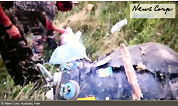 Candobetter.net Editor: NewsCorp have published an article, "Full transcript: Russian-backed rebels ransack the wreckage of MH17 in shocking 17-minute video", but the video does not bear this allegation out for me. It just looks to me as if the people examining the baggage around the crash site are trying to work out where the plane came from and documenting their findings on film. Julie Bishop, Minister for Trade and Foreign Affairs' 'disgust' at these actions seems inflammatory and unjustified. The soldiers searching the site initially think the plane is a Sukhoi-25 fighter plane which they shot at. Then they realise it is a passenger plane and they then think that the Sukhoi-25 fighter plane they brought down must have shot down the passenger plane in order to implicate the East Ukrainian self-defence forces. They hear that the Sukhoi-25 fighter plane went down in a nearby village and that people escaped with parachutes. Note, we have linked to a you-tube version of the Newscorp video. Judge for yourself: The following article published on RT originally and original contains copyright video footage from Newscorp. See
Candobetter.net Editor: NewsCorp have published an article, "Full transcript: Russian-backed rebels ransack the wreckage of MH17 in shocking 17-minute video", but the video does not bear this allegation out for me. It just looks to me as if the people examining the baggage around the crash site are trying to work out where the plane came from and documenting their findings on film. Julie Bishop, Minister for Trade and Foreign Affairs' 'disgust' at these actions seems inflammatory and unjustified. The soldiers searching the site initially think the plane is a Sukhoi-25 fighter plane which they shot at. Then they realise it is a passenger plane and they then think that the Sukhoi-25 fighter plane they brought down must have shot down the passenger plane in order to implicate the East Ukrainian self-defence forces. They hear that the Sukhoi-25 fighter plane went down in a nearby village and that people escaped with parachutes. Note, we have linked to a you-tube version of the Newscorp video. Judge for yourself: The following article published on RT originally and original contains copyright video footage from Newscorp. See 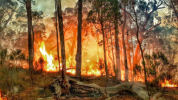 The Royal Commission recommended burns to over 5% of our natural landscape annually have finally been shown to be a waste of time, money and horrifically damaging to our biodiversity.
The Royal Commission recommended burns to over 5% of our natural landscape annually have finally been shown to be a waste of time, money and horrifically damaging to our biodiversity.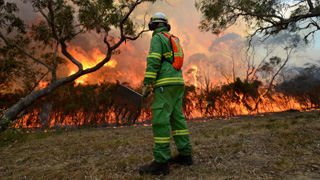 In Feb 2015 Environment Minister, Lisa Neville asked for a review of the 5% burn target and their effectiveness. Tony Pearce, the Inspector General of Emergency Management released this report and recommendations in April/May - a surprisingly quick turnaround time.
In Feb 2015 Environment Minister, Lisa Neville asked for a review of the 5% burn target and their effectiveness. Tony Pearce, the Inspector General of Emergency Management released this report and recommendations in April/May - a surprisingly quick turnaround time.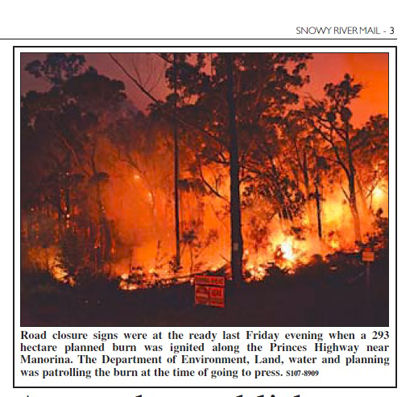
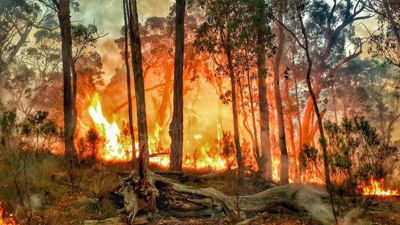 The report also mentions the need to monitor water and air quality in relation to burns. There is a need for more information, reporting, performance measurements and reviews, and in a way that is accessible to the public it says. All this would be conditional on funding and resources of course.
The report also mentions the need to monitor water and air quality in relation to burns. There is a need for more information, reporting, performance measurements and reviews, and in a way that is accessible to the public it says. All this would be conditional on funding and resources of course. Environment East Gippsland (EEG) has won its fourth successful legal case, in a remarkable series for this David vs the Goliath of logging and destroying habitat. Over 2000 hectares have been set aside for owl habitat in a legal win for the owls. This was EEG's fourth Court case challenging the government's non-adherence to its own environment laws and it was settled on 17 July 2015, in favour of the owls!
Environment East Gippsland (EEG) has won its fourth successful legal case, in a remarkable series for this David vs the Goliath of logging and destroying habitat. Over 2000 hectares have been set aside for owl habitat in a legal win for the owls. This was EEG's fourth Court case challenging the government's non-adherence to its own environment laws and it was settled on 17 July 2015, in favour of the owls! APop or The Australian Population Institute
APop or The Australian Population Institute 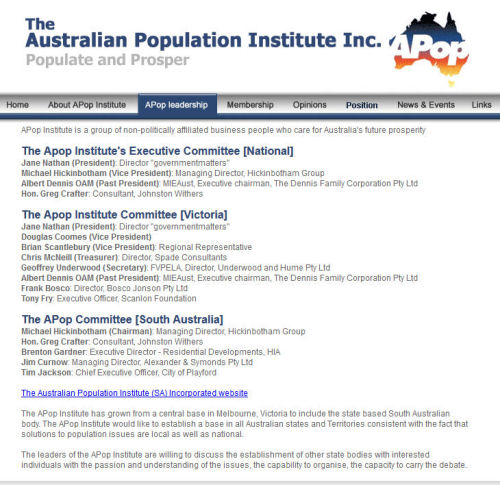 See
See 
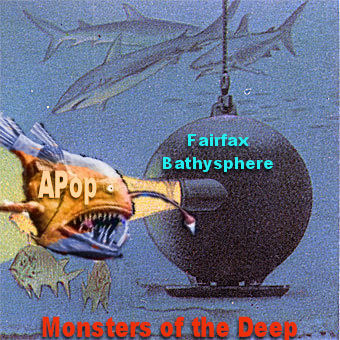
 "The proposed redevelopment (or "renewal" to use the Lord Mayor's term) of the Queen Victoria Market will cost $250 million. Does this signify the start of a new battle for inner Melbourne or has the populace been sweet talked by the Lord Mayor into accepting the demise of the QVM as we know it - and love it? And what are the traffic and transport implications for the CBD and inner Melbourne of this redevelopment?" (Submission from the Friends of Queen Victoria Market)
"The proposed redevelopment (or "renewal" to use the Lord Mayor's term) of the Queen Victoria Market will cost $250 million. Does this signify the start of a new battle for inner Melbourne or has the populace been sweet talked by the Lord Mayor into accepting the demise of the QVM as we know it - and love it? And what are the traffic and transport implications for the CBD and inner Melbourne of this redevelopment?" (Submission from the Friends of Queen Victoria Market)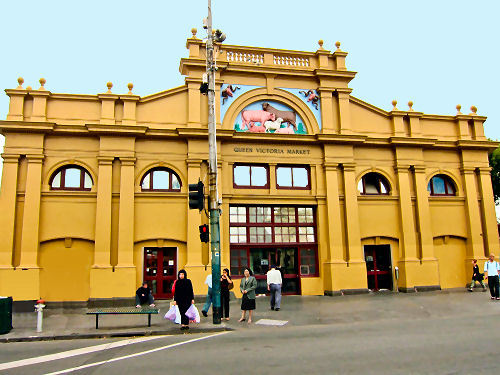 Future Melbourne Committee meeting 5:30 pm Tuesday 14 July
Future Melbourne Committee meeting 5:30 pm Tuesday 14 July
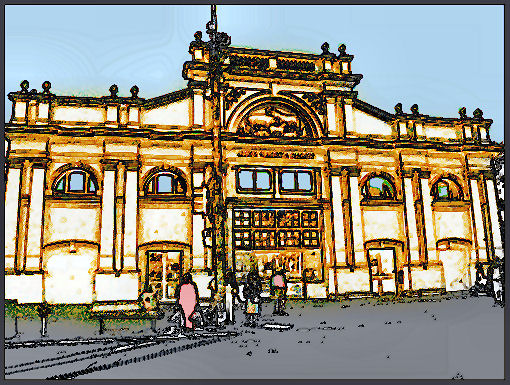
 How many more outrageous options for our state’s (planet’s) most valuable climate moderators and wildlife arks can they come up with?! Whole logs to China now. Not even processed (value added!) into woodchips. Has
How many more outrageous options for our state’s (planet’s) most valuable climate moderators and wildlife arks can they come up with?! Whole logs to China now. Not even processed (value added!) into woodchips. Has 
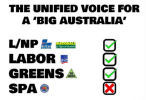 Geoff Dowsett, Member of Hornsby Kuringai Greens has questioned the Greens NSW Senate pre-selection candidates and provides the following graphics to put Australia's population growth into political and demographic perspective.
Geoff Dowsett, Member of Hornsby Kuringai Greens has questioned the Greens NSW Senate pre-selection candidates and provides the following graphics to put Australia's population growth into political and demographic perspective.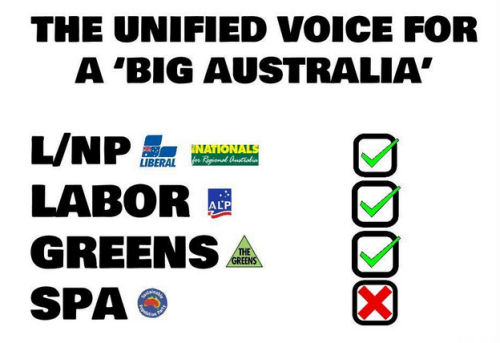
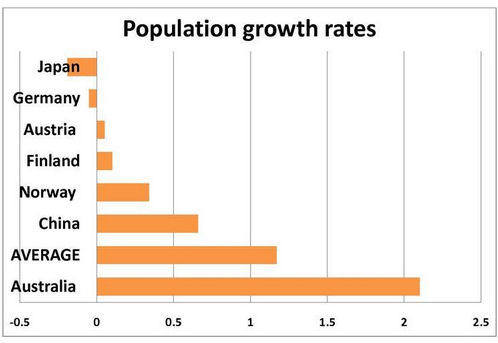
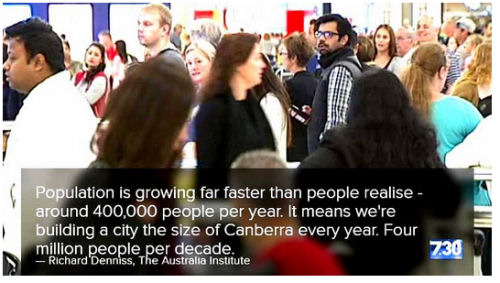
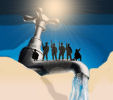 ALEPPO, SYRIA. 12 July 2015: The water crisis is getting bigger. We are boiling water and cooling it to make it clean to drink. A couple of days ago, the Syrian Government took over all water from the water sellers, who are blackmailing the people and asking expensive price for the water. Government and military officers distributed 500 litres per household for free. This pleased many but annoyed others who wanted more and were ready to pay for it. Yesterday's water prices doubled! Many say that the water (which comes from a dam on the Euphrates, which is under the terrorists' control) reached the Sleimaniyyé sector of the city, where the distribution station is located. So it needs couple of days to reach to our house.
ALEPPO, SYRIA. 12 July 2015: The water crisis is getting bigger. We are boiling water and cooling it to make it clean to drink. A couple of days ago, the Syrian Government took over all water from the water sellers, who are blackmailing the people and asking expensive price for the water. Government and military officers distributed 500 litres per household for free. This pleased many but annoyed others who wanted more and were ready to pay for it. Yesterday's water prices doubled! Many say that the water (which comes from a dam on the Euphrates, which is under the terrorists' control) reached the Sleimaniyyé sector of the city, where the distribution station is located. So it needs couple of days to reach to our house.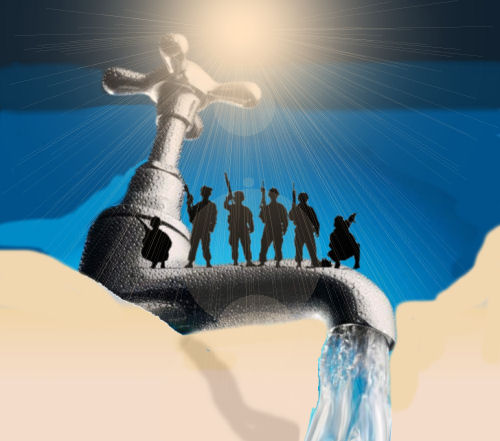 Water is life! Without it, we can't clean, drink, wash... Without it, everything is pale, dry, dusty, smelly, and thirsty.
Water is life! Without it, we can't clean, drink, wash... Without it, everything is pale, dry, dusty, smelly, and thirsty.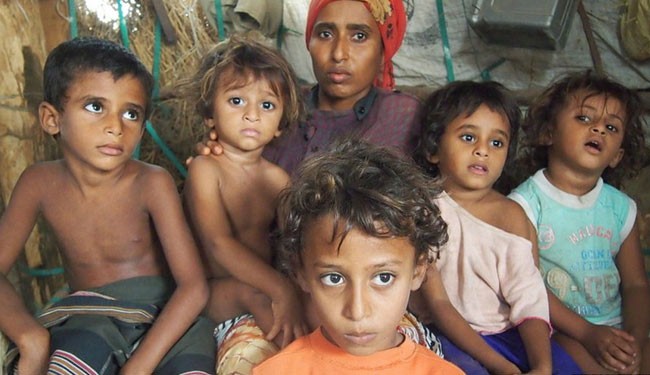
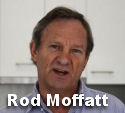
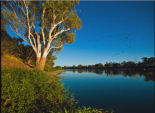 On
On 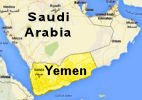
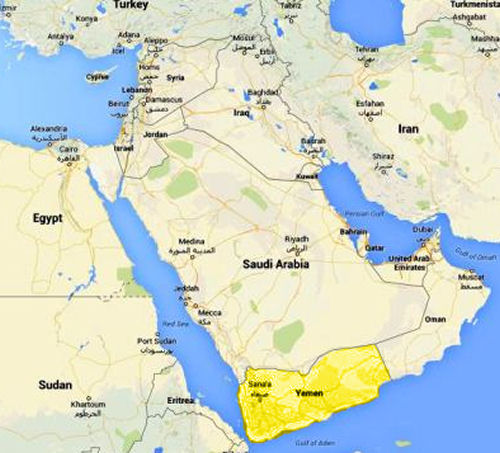 Already, it appears that Saudi Arabia has used unconventional weapons (
Already, it appears that Saudi Arabia has used unconventional weapons (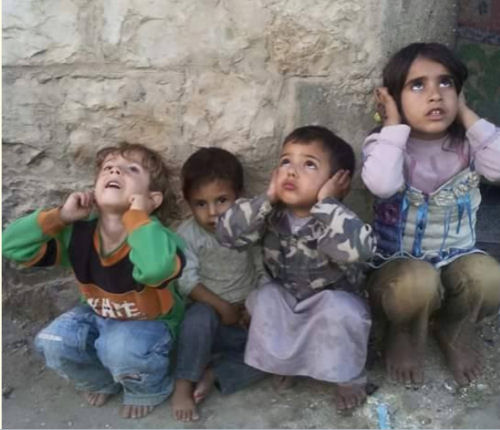

 I have had my car modified so that it cannot exceed 40kmh. The story that led up to my decision to cauterise my means of transport in this way is that I found I cannot afford to drive on Victorian roads unless I have some sort of protection against expensive fines for exceeding by a small margin often seemingly arbitrary speed limits.
I have had my car modified so that it cannot exceed 40kmh. The story that led up to my decision to cauterise my means of transport in this way is that I found I cannot afford to drive on Victorian roads unless I have some sort of protection against expensive fines for exceeding by a small margin often seemingly arbitrary speed limits.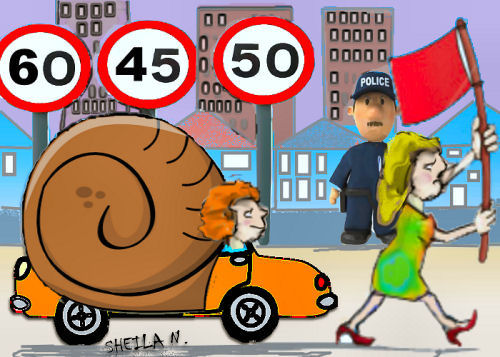 I consider that I drive normally around the streets and roads of Melbourne with the occasional sortie into the country. I am ever vigilant about speed signs and aware of cameras lurking, ready report any inadvertent misdemeanors to the money crunching accountant authorities, who are ever- ready to extract a day’s hard earned from my coffers.
I consider that I drive normally around the streets and roads of Melbourne with the occasional sortie into the country. I am ever vigilant about speed signs and aware of cameras lurking, ready report any inadvertent misdemeanors to the money crunching accountant authorities, who are ever- ready to extract a day’s hard earned from my coffers. 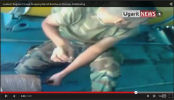 This is a letter of complaint to UK television Channel 4 [1] about what looks like recent blatant re-use and relabeling as new film of old film shot in 2012. This film has been used as propaganda against the Syrian Arab Army for the purposes of justifying support of 'rebel' groups, in an article entitled, "Syria: Living under the horrors of barrel bombs in Aleppo." We are republishing it for information and for the record.
This is a letter of complaint to UK television Channel 4 [1] about what looks like recent blatant re-use and relabeling as new film of old film shot in 2012. This film has been used as propaganda against the Syrian Arab Army for the purposes of justifying support of 'rebel' groups, in an article entitled, "Syria: Living under the horrors of barrel bombs in Aleppo." We are republishing it for information and for the record.

 Today there is heightened concern and fear among western publics about terrorism. There is no doubt that ISIS, along with other jihadi groups, poses a real (if often exaggerated) threat and have committed many heinous atrocities. But the horrible truth is, that the U.S and their G7 'partners' - that is, the political wing of what today makes up a Transnational Elite (i.e. the political, economic, cultural, elites who reside mainly in the G7 and who collectively manage neoliberal globalization) – are not only responsible for far greater crimes (i.e. millions dead and maimed in wars), but share a large degree of the blame for the rise of these groups in the first place.
Today there is heightened concern and fear among western publics about terrorism. There is no doubt that ISIS, along with other jihadi groups, poses a real (if often exaggerated) threat and have committed many heinous atrocities. But the horrible truth is, that the U.S and their G7 'partners' - that is, the political wing of what today makes up a Transnational Elite (i.e. the political, economic, cultural, elites who reside mainly in the G7 and who collectively manage neoliberal globalization) – are not only responsible for far greater crimes (i.e. millions dead and maimed in wars), but share a large degree of the blame for the rise of these groups in the first place. I thought the issues in this matter would be obvious from the background of the actual event itself and from the Wikipedia link I provided re Zaky's
I thought the issues in this matter would be obvious from the background of the actual event itself and from the Wikipedia link I provided re Zaky's 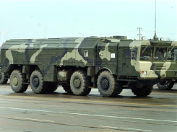
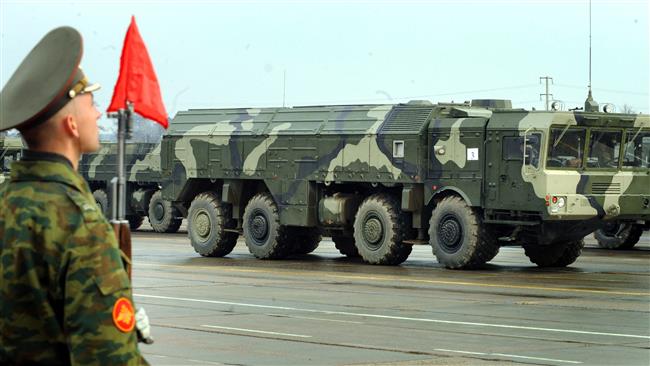
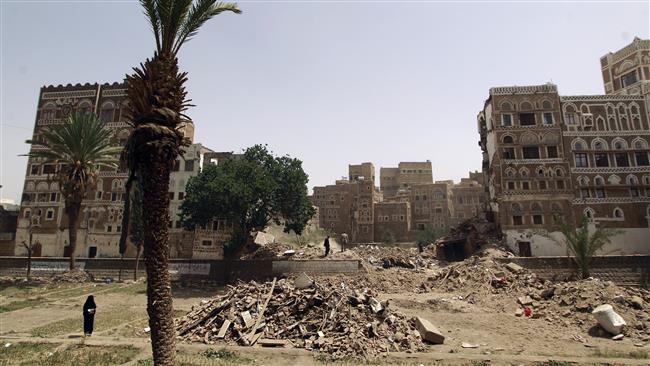
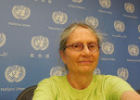 One of the main reasons I hate Wall Street and War Street is that they are usually lying through their teeth to us. Fortunately, however, there are usually actual eye-witnesses to what really happened as well, and these actual eye-witnesses are always calling Wall Street and War Street out for their lies -- but none of that even seems to matter. Remember all the lies we were told about Vietnam? Iraq? Afghanistan? Libya? Palestine? Bosnia? Ukraine? Panama? Guatemala? Granada? And how we were always warned about these lies? And yet all those "wars" went on anyway.
One of the main reasons I hate Wall Street and War Street is that they are usually lying through their teeth to us. Fortunately, however, there are usually actual eye-witnesses to what really happened as well, and these actual eye-witnesses are always calling Wall Street and War Street out for their lies -- but none of that even seems to matter. Remember all the lies we were told about Vietnam? Iraq? Afghanistan? Libya? Palestine? Bosnia? Ukraine? Panama? Guatemala? Granada? And how we were always warned about these lies? And yet all those "wars" went on anyway.
 A panel in Japan has proposed the government take measures to halt the country's population slide so it goes no lower than 100 million people. At present Japan's population is likely to fall to about 87 million by 2060. This new proposal probably reflects outside interference by globalists, who are pushing for cheap imported labour. We should take into account that Japan's population numbers were stable until international trade and 'development' pushed them up by reorganising the population away from largely rural and small cities to massive land-less labour sources in huge cities. The Japanese are a very big tribe and have managed to regain control over their numbers. This push for immigration will once again destabilise them. Japan can only feed itself by importing food and energy. Already the national atomic power production system has shown itself to be hugely unstable and dangerous. This should be taken as a signal that Japan needs to go with its natural trends to return to a smaller, stable population. Reference: Anthony Boys, How will Japan feed itself without fossil energy? in Sheila Newman, (Ed) The Final Energy Crisis, 2nd Edition, Pluto Press, 2008.
A panel in Japan has proposed the government take measures to halt the country's population slide so it goes no lower than 100 million people. At present Japan's population is likely to fall to about 87 million by 2060. This new proposal probably reflects outside interference by globalists, who are pushing for cheap imported labour. We should take into account that Japan's population numbers were stable until international trade and 'development' pushed them up by reorganising the population away from largely rural and small cities to massive land-less labour sources in huge cities. The Japanese are a very big tribe and have managed to regain control over their numbers. This push for immigration will once again destabilise them. Japan can only feed itself by importing food and energy. Already the national atomic power production system has shown itself to be hugely unstable and dangerous. This should be taken as a signal that Japan needs to go with its natural trends to return to a smaller, stable population. Reference: Anthony Boys, How will Japan feed itself without fossil energy? in Sheila Newman, (Ed) The Final Energy Crisis, 2nd Edition, Pluto Press, 2008. The panel which the mainstream western press has unsurprisingly given such prominence, reportedly advised, using typical pro-growth terms 'greying population' , 'vibrancy', 'shrinking workforce', 'larger group of pensioners':
The panel which the mainstream western press has unsurprisingly given such prominence, reportedly advised, using typical pro-growth terms 'greying population' , 'vibrancy', 'shrinking workforce', 'larger group of pensioners':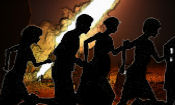 ALEPPO, SYRIA: We didn't sleep all the night. The attacks of yesterday 2nd July started around afternoon and continued up till today 8:30 am 3rd July. They said that 3-4 civilians died, but 87 civilians injured. The ambulance voices didn't stop all night long. You had to hear the people over here in Aleppo. Aren't they Syrians? After all these years and after all these attacks on them and after they lost their income sources and family members, they are asking the Syrian army to terminate the terrorist attackers and their nests, which have become like cancer in Syria's body. They don't care if that termination happens by chemical weapons, bombs, or whatever.
ALEPPO, SYRIA: We didn't sleep all the night. The attacks of yesterday 2nd July started around afternoon and continued up till today 8:30 am 3rd July. They said that 3-4 civilians died, but 87 civilians injured. The ambulance voices didn't stop all night long. You had to hear the people over here in Aleppo. Aren't they Syrians? After all these years and after all these attacks on them and after they lost their income sources and family members, they are asking the Syrian army to terminate the terrorist attackers and their nests, which have become like cancer in Syria's body. They don't care if that termination happens by chemical weapons, bombs, or whatever.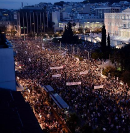
 Mark Scott is described on the internet as a businessman. But as MD of the ABC isn't he first and foremost a public servant?
Mark Scott is described on the internet as a businessman. But as MD of the ABC isn't he first and foremost a public servant?
 [Candobetter.net Editor: Updated with spelling corrections and some links on 2 July 20145.] My reaction to the short drama between Mr Mallah, Mr Ciobo and Tony Jones on the Q & A program of June 22 is different in some ways from Greg Wood's in his article earlier today,
[Candobetter.net Editor: Updated with spelling corrections and some links on 2 July 20145.] My reaction to the short drama between Mr Mallah, Mr Ciobo and Tony Jones on the Q & A program of June 22 is different in some ways from Greg Wood's in his article earlier today, 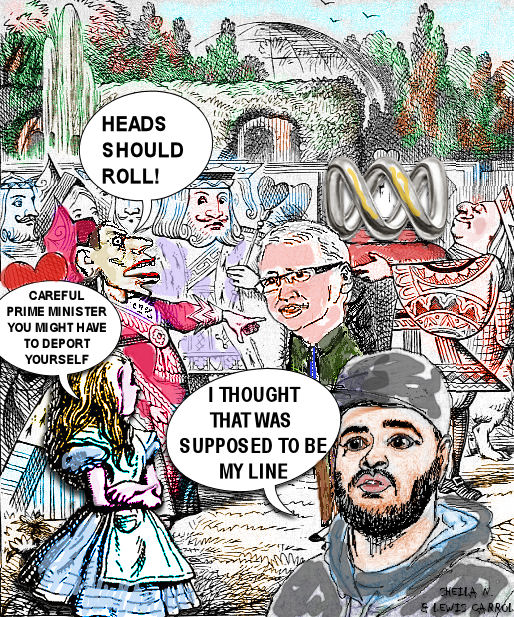 I was glad that Tony Jones and his team, whoever was responsible, allowed a citizen who had been at the margins of society to speak in this forum. With my own fairly extensive knowledge of interview techniques, I thought I recognised Ciobo's tactics as calculated to shame and inflame Mallah. Effectively Ciobo's personalisation of a legal issue caused Mallah to have to defend his 'face'. (You lose 'face' if you are attacked in public; it is much harder to deal with if a powerful figure tries to shame you in front of a crowd.) Very few ordinary people could have seen that one coming, nor could they have dealt with it any better. Perhaps only a seasoned politician could maintain apparent equanimity at such a public insult. Then again, maybe Ciobo was blowing off some steam he had accumulated after taking a drubbing from Antony Hegarty (
I was glad that Tony Jones and his team, whoever was responsible, allowed a citizen who had been at the margins of society to speak in this forum. With my own fairly extensive knowledge of interview techniques, I thought I recognised Ciobo's tactics as calculated to shame and inflame Mallah. Effectively Ciobo's personalisation of a legal issue caused Mallah to have to defend his 'face'. (You lose 'face' if you are attacked in public; it is much harder to deal with if a powerful figure tries to shame you in front of a crowd.) Very few ordinary people could have seen that one coming, nor could they have dealt with it any better. Perhaps only a seasoned politician could maintain apparent equanimity at such a public insult. Then again, maybe Ciobo was blowing off some steam he had accumulated after taking a drubbing from Antony Hegarty ( Update: Full Report now attached inside this article."[...]There is an insufficient amount of publicly available information about agreements under negotiation, and independently sourced economic analyses of their likely benefits are not mandatory. In relation to the TPP, this has fuelled media speculation on the content of the agreement when certainty based on fact is required. It is unsatisfactory for complex trade agreements, which are years in the making, to be negotiated in secret and subject to stakeholder and parliamentary scrutiny for a few short months with no realistic capacity for text to be changed, and then for implementation of the legislation to be rushed through parliament unamended. This comes very close to making a mockery of the process and of parliament's involvement." (Alex Gallacher, SA, Australian Labor Party, Senate debates, Thursday, 25 June 2015, Foreign Affairs, Defence and Trade References Committee; Report [1])
Update: Full Report now attached inside this article."[...]There is an insufficient amount of publicly available information about agreements under negotiation, and independently sourced economic analyses of their likely benefits are not mandatory. In relation to the TPP, this has fuelled media speculation on the content of the agreement when certainty based on fact is required. It is unsatisfactory for complex trade agreements, which are years in the making, to be negotiated in secret and subject to stakeholder and parliamentary scrutiny for a few short months with no realistic capacity for text to be changed, and then for implementation of the legislation to be rushed through parliament unamended. This comes very close to making a mockery of the process and of parliament's involvement." (Alex Gallacher, SA, Australian Labor Party, Senate debates, Thursday, 25 June 2015, Foreign Affairs, Defence and Trade References Committee; Report [1]) Material has been added to this article on 1 July 2015. The general deception and essential horror active within the current bullshit storm being unleashed around the ABC and Mallah is fully revealed by simply reading the factual account of Mallah's background, linked below, and then considering what was actually said in the Q&A program in context to that factual background.
Material has been added to this article on 1 July 2015. The general deception and essential horror active within the current bullshit storm being unleashed around the ABC and Mallah is fully revealed by simply reading the factual account of Mallah's background, linked below, and then considering what was actually said in the Q&A program in context to that factual background.
Recent comments